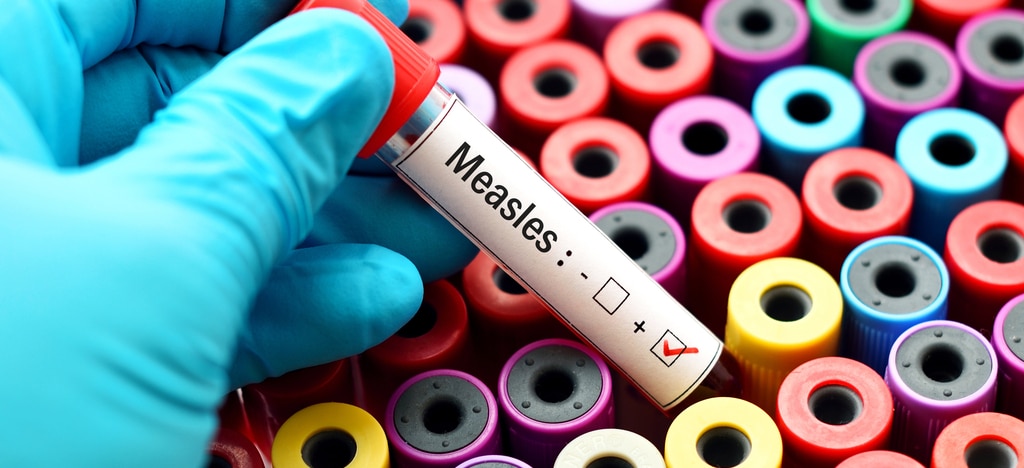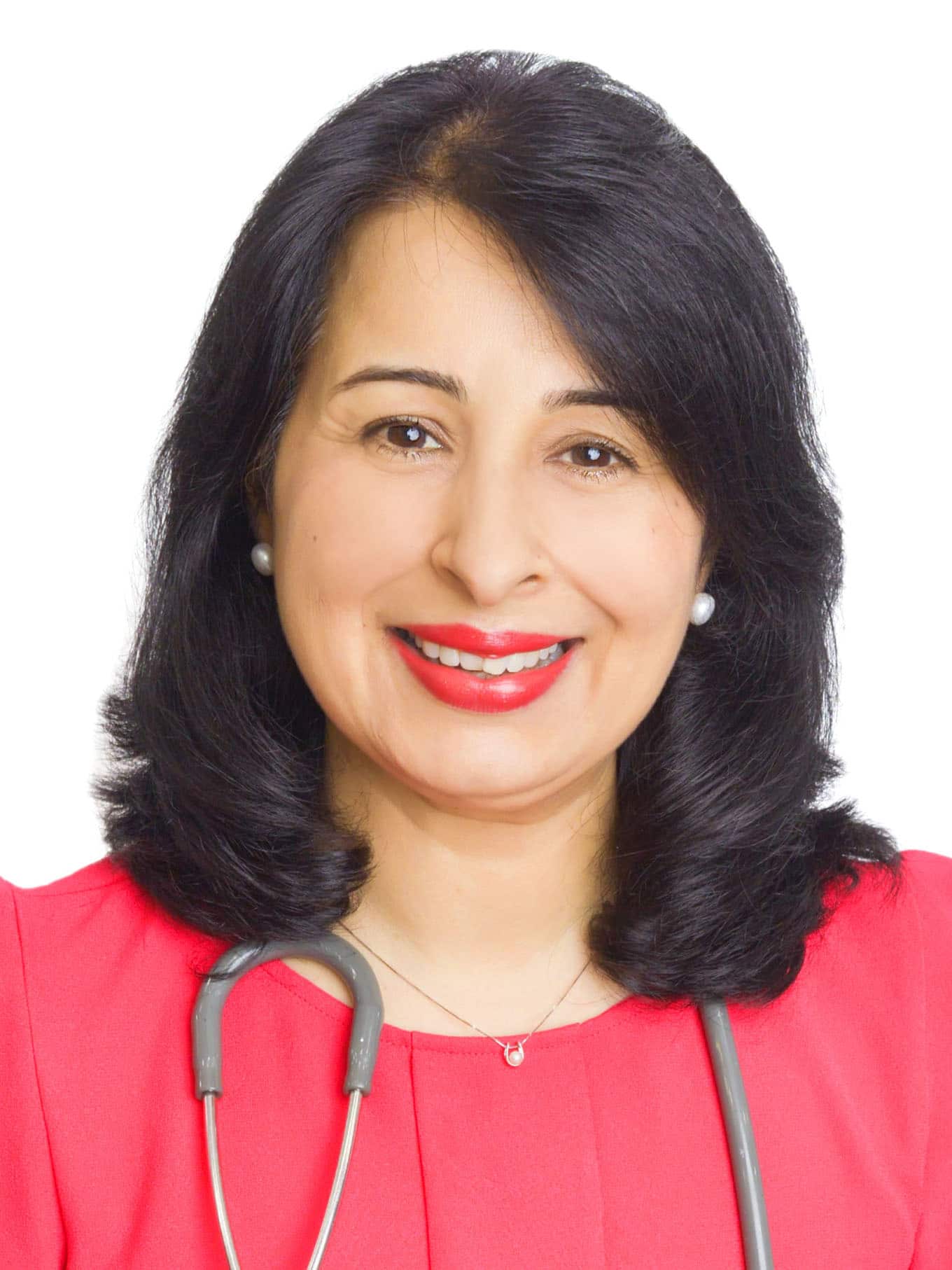
What is the difference between ‘measles’ ‘mumps’ and ‘rubella’ ?
Measles, mumps and rubella are all caused by viruses. They are vaccine preventable and a combined vaccine for the three illnesses is used for prevention. Measles usually presents with a high fever and upper respiratory symptoms after which a rash appears. It is an illness associated with some potentially serious complications. It is described in more detail under the third heading below.
Mumps presents as a one or both sided swelling of the salivary glands (parotid glands) located below the ears and around the jaw area. A mild fever, headache and muscle pains may occur beforehand. Complications include inflammation of the testicles (orchitis), deafness, swelling of the brain (encephalitis) or meningitis.
Rubella is also termed ‘German measles’. It starts with a mild fever along with swollen neck glands and a facial rash that spreads to the rest of the body. Pregnant women who contract the illness are at high risk of congenital birth defects and miscarriage. Other complications include arthritis.
How is the virus spread?
Measles is highly contagious. It is spread through airborne droplets that are released into the air when coughing, breathing and sneezing and through contact with secretions of the nose or eyes. The virus can stay active for about two hours after being released into a room.
What are the first signs of measles? What are the symptoms?
The disease incubates for 8-12 days before symptoms appear. A high fever, runny nose, cough and eye inflammation (conjunctivitis) occur initially. 1 to 4 days later, spots may be noted on the cheek lining within the mouth – reddish with a white centre (Koplik’s spots). A doctor may be able to differentiate measles from other viral illnesses based on these. This is followed by a rash which starts from around the hairline slowly spreading to the face and then the rest of the body including the palms and soles. The rash may appear to be flaky or peeling a few days later.
How long is a patient contagious for?
From 4 days before onset of symptoms to 4-6 days after onset of the rash.
Is measles dangerous?
Yes it is. The illness can have serious complications as the virus causes damage by itself and makes the person susceptible to other bacteria as well. Children under 5 years, those above 20 years, pregnant women and people whose immunity may be suppressed for any reason are more prone to serious complications leading to disability or death. These may include:
- Pneumonia – viral or bacterial
- Encephalitis (Swelling of the brain)
(About 1-2/ 1000 children may die of the above complications). - SSPE – Subacute Sclerosing Pan Encephalitis is a progressive neurological condition that can set in about 7-10 years after measles. It presents with seizures followed by behavioural and intellectual deterioration and ultimately death. There is NO cure for this.
- Ear infection, sinusitis, bronchiolitis, croup, febrile convulsions, diarrhoea and vomiting are commonly associated.
- Inflammation of the heart muscle Is a rare complication
- Measles in pregnancy is linked to both complications in the mother and fetal loss.
Is there treatment available for measles?
Treatment is supportive only as antiviral medication is not known to be of benefit. Hydration, rest and good nutrition will support recovery. Aspirin should be avoided due to a risk of a serious condition called ‘Reye’s syndrome’.
Vitamin A deficiency has been linked to a greater severity of illness and supplementation has been used in malnourished children and certain subgroups to support recovery.
Are there outbreaks in Asia? Why is this happening now?
There have been outbreaks in several countries in Asia in the past few years. In 2019:
- Phillipines has been one of the worst affected with Manila and Luzon having the majority of cases. 9000 cases were recorded till mid February with 146 deaths reported. Vaccine fear and skepticism following the adverse effects of the dengue vaccine last year caused vaccine updates to plummet in the country.
- Japan has had about 167 cases in Osaka and Mie. These may have been imported by travellers from abroad. There had been low uptake of the vaccine following a religious group preaching anti vaccine advice and alternative healing. The government has since dealt with the issue.
- Vietnam – in Ho Chi Minh City over 900 cases have been reported in February with some in Hanoi and Dong Nai.
- Myanmar – the Yangon area along with some other parts of Myanmar are currently suffering a measles outbreak
- In November 2018, about 4000 children in Southern Thailand contracted measles and there were over 22 deaths.
- Beyond Asia, some of the US states (New York, Texas and Washington), Israel are also dealing with epidemics. Some have occurred due to poor vaccine uptake in orthodox communities; others have been imported by travellers. Europe has suffered too with the UK, France, Greece, Italy and Romania having had outbreaks.
Is measles present in Singapore?
Singapore has had more measles cases in recent years. Data suggests that uptake of the vaccine is high in children who are resident but foreign born children may have unknown vaccine status or be un-vaccinated. Low vaccine coverage leads to a fall in ‘herd immunity’. Unfounded fears of autism and gut problems due to MMR has led to a fall in immunization uptake in many parts of the world. The damage has been done even though the myth was debunked soon after the initial fear was created back in 1998.
Herd immunity protects children who are too young for vaccination or persons who cannot be immunized for medical reasons; a vaccine coverage of 95% is required for this.
When should children get the vaccination?
The Singapore schedule recommends a MMR vaccine (measles, mumps and rubella vaccine) at 12 months followed by a booster at 15-18 months of age. Two doses are required for complete protection.
A similar recommendation exists in Australia. The UK and US vaccine schedule advises the booster dose at the preschool age ; however while resident in Singapore, the booster dose of the vaccine should be offered at 15-18 months due to more cases of the disease in recent years.
Teenagers or adults who are non immune should be vaccinated. It is safe to do a vaccine if no records are available of previous vaccination.
Is the vaccination mandatory in Singapore?
Yes. MMR vaccination has been mandatory since 1985. In fact, from February 2019, all foreign born children less than 12 years old are expected to show proof of measles vaccination or immunity to obtain certain types of immigration passes (details on MOH website – https://www.moh.gov.sg).
Measles is an illness with no treatment available; it has serious consequences for our children and has a safe and effective vaccine available to prevent it. In addition, every child protected increases the herd immunity required to protect the vulnerable persons around us such as babies less a than a year old and the elderly. We owe it to our children and society to go ahead and vaccinate our kids!
 Dr Charu Narayanan is based at IMC Katong. Please call 6342 4440 for an appointment.
Dr Charu Narayanan is based at IMC Katong. Please call 6342 4440 for an appointment.




































